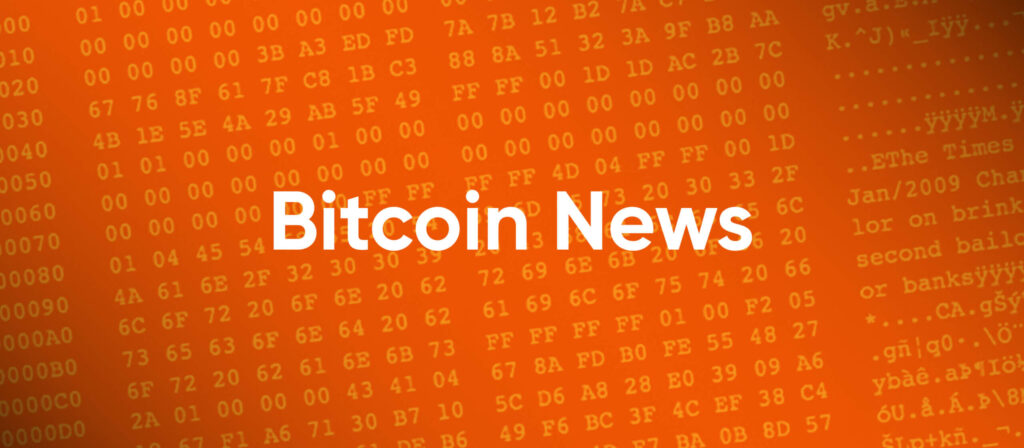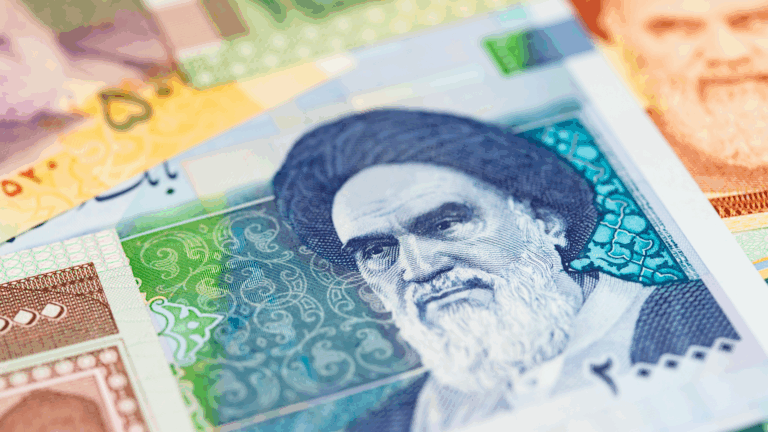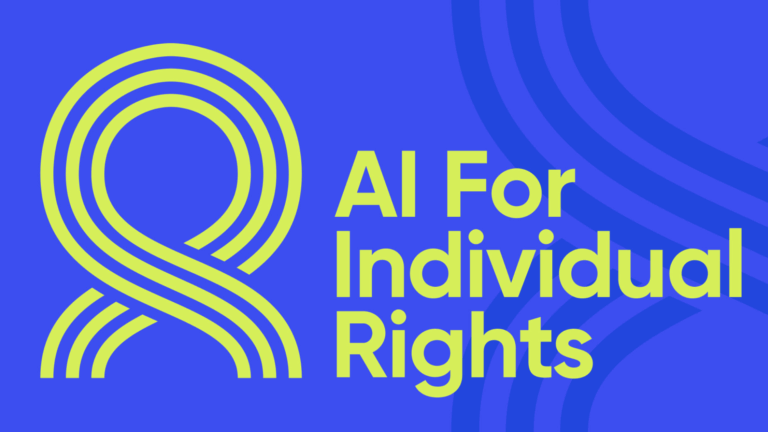The Financial Freedom Report is a newsletter focusing on the role currency and banking play in the civil liberties and human rights struggles of those living under authoritarian regimes. We also spotlight new tools and applications that can help individuals protect their financial freedom.
Good morning, readers,
We’re thrilled to announce that this week HRF granted $500,000 to 14 projects worldwide as part of its Bitcoin Development Fund.
These Q1 gifts focus on global education, Lightning Network development, decentralized communications, and providing nonprofits and human rights groups with easier access to financial freedom tools. Geographic areas of focus include Latin America, Asia, and Africa. You can read more in Bitcoin Magazine’s profile of the grant round or in our press release.
Now, onto this week’s news…
Senegalese presidential candidate Bassirou Diomaye Faye promised a new currency if elected, and Hungarian Prime Minister Viktor Orbán is seeking to expand control over the country’s central bank while creating an agency that will target human rights defenders who receive foreign financing.
In a landmark ruling in the United Kingdom, Judge James Mellor ruled against Craig S. Wright’s claim to be Satoshi Nakamoto, the creator of Bitcoin, concluding a two-month lawsuit by the Crypto Open Patent Alliance (COPA). Plus, one of the largest peer-to-peer Bitcoin exchanges has added multiple trade protocols to its platform to keep up with Bitcoin’s pace of innovation and increased user base.
We end with a story from Peru, where unbanked residents are using bitcoin to transact and save, and from Costa Rica, where local markets are accepting bitcoin to run more efficiently.
Let’s dive right in!

Hungary | Power Grab of Central Bank & Civil Rights Groups
Hungarian Prime Minister Viktor Orbán has launched a feud with the country’s central bank, the Magyar Nemzeti Bank (MNB), as he seeks to expand oversight over the MNB ahead of both the European Union (EU) and local elections later this year. Orbán has pushed for interest rate cuts to stimulate the economy and proposed reforms to the central bank, which the MNB believes are aimed at influencing its decision-making autonomy. To add to this power grab, Orbán has established a new agency, the Sovereignty Protection Office (SPO), which targets politicians, activists, journalists, and civil rights groups that receive US funding. Critics view this as a crackdown on dissent reminiscent of tactics employed by Russia. Political activist Márton Gulyás compared the SPO to “a locked and loaded weapon on the table” that Orbán can wield or threaten critics with. “It can be used in a coordinated government attack any time.” Orbán’s efforts to increase control over both the central bank and dissenting voices raise concerns about the erosion of democracy in the country.
Haiti | Prime Minister Resigns
Earlier this month, Haitian gang leader Jimmy Cherizier launched an attack against acting Prime Minister Ariel Henry, threatening a “civil war that will lead to genocide” unless Henry resigns. Gangs targeted critical infrastructure (i.e., airports), orchestrated prison breaks (plus the release of more than 4,000 inmates), and seized control of the country. Henry, whom many Haitians consider corrupt, has led the country on a supposed interim basis since July 2021, postponing elections over security concerns. He announced his resignation on March 1 after Haiti’s complete societal collapse. Haiti’s history is marred by hardships, from forced “reparations” paid to France after its independence to the Duvalier dictatorship, flawed international interventions, and natural disasters. The country might be cut off in many ways from the international financial system, but Flash — a Bitcoin and Lightning wallet that lets people in the Caribbean receive, save, and spend bitcoin — is set to launch this year, providing a way out.
Belarus | Detention of Lawyers Helping Prisoners of Conscience
Authorities in Belarus detained at least 12 lawyers who provided legal assistance to prisoners of conscience and their families. Notable for a country with a population of 9.5 million, hundreds of thousands came onto the streets when dictator Alexander Lukashenko rigged elections and seized a sixth presidential term in 2020. Lukashenko then detained more than 35,000 people, many of whom were tortured, forced to flee, and labeled as extremists. Now, human rights lawyers are being detained, losing their law licenses, leaving the profession, and fleeing the country. NGOs have also been targeted financially, with the government freezing the bank accounts of dissidents and those who aid them. Bitcoin has played a significant role in funding the opposition over the past few years, and new innovations like Lnp2pbot help Belarusians transact in a currency that Lukashenko can’t control.
Senegal | New Currency Promised
Bassirou Diomaye Faye, leader of the Senegalese opposition party, PASTEF, promised to introduce a new currency as part of his presidential campaign. “Convinced that full independence cannot be achieved without controlling the economy,” he said, “we are fully committed to achieving food, digital, fiscal, energy and scientific sovereignty.” It is understandable why West African leaders would want to leave the colonial CFA franc currency behind, but a new Senegalese currency would be prone to abuse by the country’s ruling elite. In the face of these uncertain times, some Senegalese have begun exploring Bitcoin adoption. HRF has supported the regional annual event, Dakar Bitcoin Days, which showcases a vibrant community of local organizations and entrepreneurs building a new economy beyond the control of local authoritarians and foreign influence.
El Salvador | Government Reveals Bitcoin Address
Last week, the president of El Salvador, Nayib Bukele, disclosed the Bitcoin address to the bitcoin the state authorities have been amassing over the last few years. According to his X post, the address holds a sum of 5689 bitcoin valued at approximately $400 million (at the time of publishing). Salvadorans can now audit this portion of the country’s reserves and monitor transactions to and from the wallet. Despite this positive step, many questions remain unanswered, including: Where is the other money? Who holds the private keys to the wallet and thus has access to these funds? These funds are taxpayer money, and NGOs and journalists inside El Salvador continue to push for answers in an increasingly authoritarian environment.
Lebanon | Rising Bitcoin Adoption
Decades of mismanaged fiscal and monetary policy have led to a staggering 98% depreciation of the Lebanese pound since 2019. Regional analyst Mike Azar argues that “the damage caused by the currency crisis is irreparable.” For those who have lost faith in the local currency system, mining bitcoin has become a source of income. For others, Telegram groups have become the place to connect and exchange stablecoins like Tether for USD to buy groceries. Lebanon grapples with triple-digit inflation, rampant corruption, a lack of essential services, and restricted access to dollars. It’s no surprise that Bitcoin adoption continues to rise and that citizens continue their search for money that works even under dire circumstances.

Bitcoin | High Court Rules Craig Wright Not Satoshi Nakamoto
In a landmark ruling in the United Kingdom, Judge James Mellor ruled that the Australian businessman Craig Wright, who for years falsely claimed to be Satoshi Nakamoto and sued open-source developers and critics, is not Satoshi Nakamoto. Mellor arrived at the decision because the “evidence was so overwhelming,” saying: “First, that Dr. Wright is not the author of the bitcoin white paper. Second, Dr. Wright is not the person who adopted or operated under the pseudonym Satoshi Nakamoto in the period 2008 to 2011. Third, Dr. Wright is not the person who created the bitcoin system. And, fourth, he is not the author of the initial versions of the bitcoin software.” The lawsuit was brought forth by the Crypto Open Patent Alliance (COPA), seeking to refute Wright’s claims of being Bitcoin’s creator and author of the whitepaper. In response to the ruling, COPA said: “This decision is a win for developers, for the entire open source community, and for the truth.”
Mostro | Buyers Can Add New Invoices
Mostro — an open-source, KYC-free, and peer-to-peer Lightning exchange leveraging the Nostr protocol — released an update that allows buyers to add new invoices. Previously, buyers would generate an invoice for Mostro to pay. This setup, however, would lead to complications when buyers went offline after creating an invoice, resulting in failed payments and incomplete transactions. Now, in the event of a failed payment, Mostro will ask buyers to send a new invoice and automatically attempt to process three additional payments to improve transaction completion. It’s worth noting that Mostro also supports Lightning addresses. Developed by Francisco Calderón, a Venezuelan who understands the critical need for such tools under authoritarian regimes, Mostro may empower users with a censorship-resistant communication platform and decentralized financial exchange. HRF is proud to support Mostro and Calderón through our Bitcoin Development Fund.
Bisq | Test Release of Bisq 2
Bisq unveiled Bisq 2, the next iteration of its decentralized Bitcoin exchange. Decentralized exchanges like Bisq enable users anywhere in the world to buy and sell Bitcoin in a peer-to-peer manner without requiring proof of identity, a bank account, or centralized intermediaries — a crucial tool for activists and privacy-minded individuals. Bisq 2 will bring multiple trading protocols that enable, for example, Bitcoin trades over the Lightning Network and mobile phone access to Bisq. The first new trade protocol it will support is Bisq Easy, which “allows users to buy bitcoin with no trade fees and no security deposit.” This update has the potential to help democratize access to KYC-free Bitcoin.
Robosats | The Federation Layer
Robosats, the private Lightning peer-to-peer (P2P) exchange, has introduced the RoboSats Federation: “a decentralized system of independent coordinators to host orders, enhancing the platform’s robustness and user experience. This version is a significant step toward decentralization, allowing users to interact with any coordinator seamlessly,” according to Robosats. With multiple coordinators competing for users, this new update empowers users to select a coordinator they trust to carry out a transaction. HRF is proud to support this open-source project, which also facilitates private P2P Bitcoin exchanges for activists and citizens worldwide. To learn more and get started with RoboSats, visit the link here.
Boltz | Launch of Boltz Client
Boltz, a non-custodial Bitcoin exchange, launched its latest offering, Boltz Client, to the general public. This new swap client, built on the foundations of Boltz LND, caters to Lightning node operators and facilitates automated and cost-effective channel rebalancing. The key features of the release include Taproot swaps and Liquid swaps that will enable “features like immediate cooperative refunds, increased swap reliability, cheaper network fees, and increased privacy,” as well as support for the growing CLN ecosystem. Boltz is an HRF grantee working to support a non-custodial way for citizens to access Bitcoin and the economic empowerment it may provide. To learn more about how to use Boltz, watch this tutorial from Bitcoin educator Anita Posch.
SXSW | HRF Supports Bitcoin Takeover
Last week, HRF supported a series of events during the SXSW festival in Austin, Texas. The Bitcoin Commons, a central coworking and event space in the city, hosted its annual Bitcoin Takeover, with HRF as the leading sponsor. The event featured presentations by entrepreneurs working on innovative tools to help grow the Bitcoin ecosystem, with the goal of making Bitcoin as money a reality for people around the world. HRF also supported the Top Builder hackathon organized by PlebLab, which highlighted startup projects from around the globe. The leading projects from this hackathon were invited to Austin to present their solutions addressing challenges within the Bitcoin space.
Recommended Content
Empowering Human Rights Through Bitcoin & Open-Source Software
At HRF, we have provided more than $2.7 million in grants to more than 100 projects worldwide working to improve Bitcoin and open-source freedom technology. In this article, Forbes contributor Brianna Honkawa d’Estries highlights five HRF grantees focused on making Bitcoin better. They include Lucas Ferreira of Vinteum, Lisa Neigut of bitcoin++, Brandon Iglesias of TABConf, Rockstar Dev of BTCPay Server, as well as Carla Kirk Cohen and Abubakar Nur Khalil of BTrust Builders. Find out what each of these grantees is building and why they believe Bitcoin’s distinctive attributes position it as a crucial tool for individuals confronting oppressive regimes.
Unbanked Bitcoin Users In Peru Are Changing Their Communities
Peru ranks among the countries with the highest percentage of unbanked citizens globally, but technology is changing that. Across Peru, from the Andes to the Amazon, unbanked communities are embracing bitcoin and experiencing profound transformations. Motiv, a nonprofit organization dedicated to community development, assesses the unique needs of each community, mobilizes specialists (such as shoemakers and medical doctors), and introduces bitcoin as a tool to facilitate payments. Motiv has found that women, particularly single mothers, tend to adopt bitcoin more quickly and teach others in their community. Read this profile to learn about the opportunities that Bitcoin unlocks for unbanked communities in remote regions like Peru.
Inside Costa Rica’s Secret Bitcoin Community
Merchants at farmers’ markets in Uvita, Costa Rica, experienced high friction when accepting payments. Lee Salminen, co-founder of Bitcoin Jungle, a Bitcoin circular economy in Uvita, spent five weeks helping merchants adopt bitcoin as payment to address this issue. In this 18-minute video, produced by Bitcoin educator and YouTuber Julian Figueroa, you’ll hear from merchants about their experience accepting bitcoin payments. You’ll also hear from four individuals fostering a rapidly growing Bitcoin community in the tropical forests of Costa Rica. One such individual is an elderly woman who, after her home was burned down, received bitcoin donations and is now rebuilding her home with the hope of hosting a Bitcoin meetup one day. This video offers a glimpse into the development of circular economies and the transformative power of Bitcoin within these local communities.
Oslo Freedom Forum | Reserve Your Spot
Human rights advocates from around the globe will take the Oslo Konserthus stage on June 3-5, 2024, to share their efforts to defy repression and speak out against injustice. This year’s theme, Reclaim Democracy, emphasizes the pivotal role every individual plays within the global movement for democracy. The Financial Freedom team is looking forward to creating a program track exploring the role open-source money plays in preserving our human rights and civil liberties. Use the code 2024OFF to get an early bird discount on your ticket.
If this email was forwarded to you and you enjoyed reading it, please consider subscribing to the Financial Freedom Report here.
Support the newsletter by donating bitcoin to HRF’s Financial Freedom program via BTCPay.
Want to contribute to the newsletter? Submit tips, stories, news, and ideas by emailing [email protected].
Purchase your ticket to the 2024 Oslo Freedom Forum, taking place June 3-5 in Oslo, Norway. Use the code 2024OFF to get an early bird discount.
The Bitcoin Development Fund (BDF) is accepting grant proposals on an ongoing basis. The Bitcoin Development Fund is looking to support Bitcoin developers, community builders, and educators. Submit proposals here.








